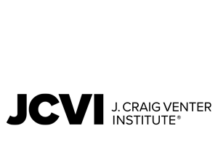 In 2001 Princeton University eliminated student loans in its financial aid packages. The revolutionary plan also paid full tuition and other costs for all students who came from families with incomes below $60,000. However, to take advantage of the generous financial aid program, students had to be admitted to the university. And low-income students have found it difficult to gain admission to Princeton and most other high-ranking colleges and universities. This year’s entering class at Princeton has 290 students from low-income families. They make up 22 percent of the class. About 18 percent of Princeton’s first-year class receives federal Pell Grants, which are reserved for low-income families.
In 2001 Princeton University eliminated student loans in its financial aid packages. The revolutionary plan also paid full tuition and other costs for all students who came from families with incomes below $60,000. However, to take advantage of the generous financial aid program, students had to be admitted to the university. And low-income students have found it difficult to gain admission to Princeton and most other high-ranking colleges and universities. This year’s entering class at Princeton has 290 students from low-income families. They make up 22 percent of the class. About 18 percent of Princeton’s first-year class receives federal Pell Grants, which are reserved for low-income families.
Now Princeton has instituted new programs to increase the number of low-income students on campus. Princeton will expand its partnership with Leadership Enterprise for a Diverse America (LEDA). Since 2005, LEDA has held the Aspects of Leadership Summer Institute on the Princeton campus. The seven-week summer program for low-income students offers leadership training, test preparation classes, college guidance, and writing instruction. Princeton will now expand the program from 60 to 100 students each summer.
Princeton will also expand its Freshman Scholars Institute, a summer bridge program for low-income students who plan to major in STEM disciplines, with the goal of boosting retention rates for students in these fields.
Princeton is also expanding its efforts to identify and recruit high-performing students from low-income families. The admissions office has hired a new officer to provide outreach and support to low-income students. Applications fees for low-income students are waived.
Princeton President Christopher L. Eisgruber stated that “increasing the number of students at Princeton from lower socioeconomic backgrounds, and providing them with the resources they need to be successful, are high priorities for us. I am grateful for the support of alumni who have provided funding for these initiatives and to the members of the faculty and staff who are helping to design and carry out these programs.”











